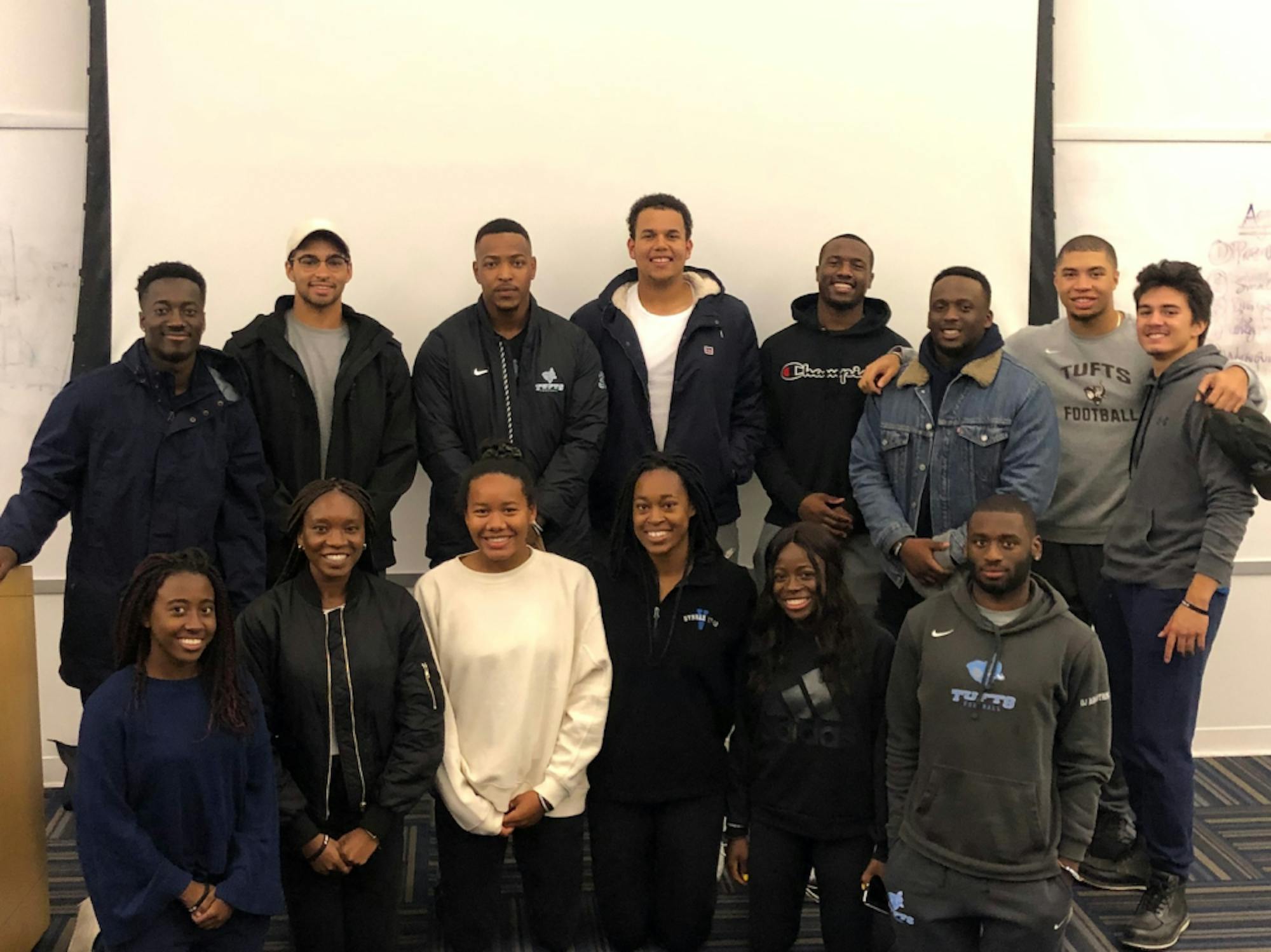Many student organizations have pushed to further acknowledge systemic racism and engage in anti-racist efforts after the Black Lives Matter movement sparked widespread outcry for racial justice last summer. One such organization at Tufts pushing for anti-racist practices isAthletes of Color. The club's co-president, junior Chi-Chi Ikpeazu, explained its mission.
“Our main objectives are to create an affinity space for varsity athletes of color on Tufts’ campus, whether that be through meetings where we have really in-depth conversations about race or through fun events,” Ikpeazu said.
Ariel Zedric, the alumni relations coordinator of Athletes of Color, acknowledged that having an affinity space for varsity athletes of color is especially important because many teams lack racial diversity.
“First and foremost, we're trying to be … a safe space for athletes of color, where they will come and talk about their experiences, and relate to each other and feel not so alone or as isolated as they can feel on predominately white teams," Zedric said. "I think athletics especially is a really homogeneously white part of an already predominantly white institution, so I think that it's really important to band together and to have a space inside athletics for [people of color].”
Zedric mentioned that the club recently implemented a system that establishes an Athletics of Color representative on each varsity athletic team. The representative is meant to act as a liaison between Athletes of Color and each varsity team. They relay anti-racist resources and serve as a support and a knowledgeable point of contact for athletes on their team. Junior Xavier Brooks, the club's secretary, explained the importance of having team representatives.
“As an athlete of color, you have to show up every day as an athlete of color," Brooks said. "Every day that you show up on campus, we want to make sure you have support, and we want your support system to be people who you're going to see every single day. So, having a team [representative] on every team gives a person a close contact, a familiar face that they can go to."
The club has moved to create a welcoming community among Tufts’ varsity athletes of color, as well as push for change in the athletics department’s administration.
“We also have this administrative gear that pushes our athletics department to be better regarding their anti-racist efforts and diversity, equity and inclusion efforts. Just making sure that there are actions behind the words that they say,” Ikpeazu said.
In their effort to work with the athletics department, members of Athletes of Color have compiled a list of 13 action items. Among other efforts, these items aim to push the department to amplify the club's work, implement more regular anti-racist and diversity, equity and inclusion trainings and maintain transparency in the department’s hiring practices regarding staff who are people of color.
While Athletes of Color hopes to see change within the athletics department, Brooks reiterated his gratitude for the university’s support.
“I really have to give a lot of credit to Tufts … They have recently created the Diversity, Equity, and Inclusion committee, which is actually a coach's committee," Brooks said. "That committee has been put together really for the purpose of making sure athletes on campus are supported in whatever they're doing. That's been really awesome to see from Tufts.”
The COVID-19 pandemic has also posed challenges for Athletes of Color this year. The club's events have taken place over Zoom, and Zedric, Ikpeazu and Brooks admitted that conducting virtual meetings has presented challenges. Mainly, according to the three executive board members, it has been difficult to create meaningful connections.
“We've just lost this social manner of interacting with one another, which is kind of sad," Ikpeazu said.
Conducting events virtually also poses a challenge for recruiting and building membership as Athletes of Color looks to do, according to Brooks. Yet, despite these challenges, Athletes of Color makes an effort to host fun and engaging meetings for its members and other student-athletes. One creative event was an “Among Us” tournament the club hosted in the fall.
Looking toward the future, Athletes of Color wants to establish a stronger network of alumni. The club has established a LinkedIn group, and it hopes to organize a career panel with Athletes of Color alumni.
“We were thinking about breaking people out into industries like finance or pre-med just to get some of the inside scoop, form connections, networking, locations, internships — anything really,” Zedric said.
Athletes of Color continues to pursue initiatives to create a stronger community of athletes of color on campus and push for administrative change within the athletics department. Ikpeazu expressed her hopes for the club's future.
”I want every athlete of color to, before they enter Tufts, know what [Athletes of Color] is because that community aspect and not feeling alone is just so important," she said. "I want our fellow student-athletes, and student-athletes in general, to know that our department is consciously implementing ways to be anti-racist … and that we're doing our part in terms of educating ourselves. That doesn't just involve racism, but also other forms of discrimination. I want that to be a hallmark of Tufts athletics.”






